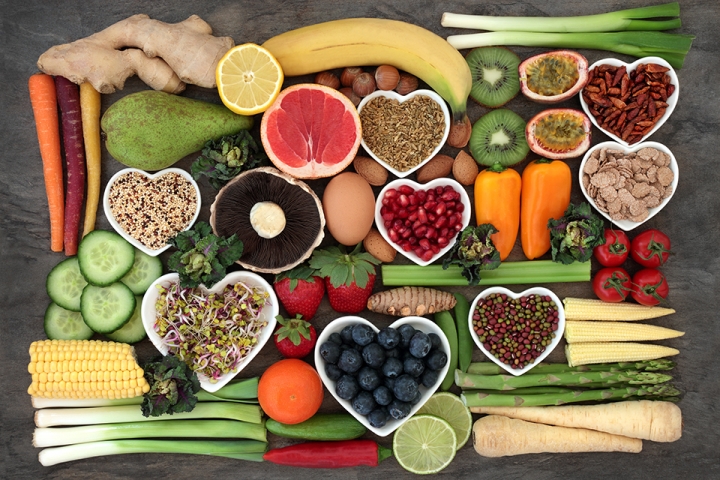
This is the third of a three-part series on heart disease in honor of American Heart Month.
In the second part of the series, we focused on knowing your numbers. With this data, you can make more informed decisions to improve your heart health.
This final part of the series includes some basic recommendations and modifications in health habits and lifestyle that can help you to feel better, function better, and avoid serious heart events:
- Increase physical activity levels.
- Reduce salt intake. Don’t eat foods high in salt content, and avoid adding salt to your food.
- Don’t smoke, chew, or vape tobacco products. Tobacco is a major cause of heart disease. It directly injures arteries in the body and makes arteries more prone to get blocked with plaque deposits. I also do not recommend smoking ‘alternatives’ like vaping as evolving literature shows adverse effects that are as bad, or worse, than smoking.
- Limit alcohol intake to 1 to2 drinks a few times per week at the most.
- Get adequate sleep. Most people need 8 to10 hours of sleep per night. Six hours of sleep is the minimum and there is evidence that lack of sleep is a major contributor to heart disease and the other conditions that contribute to heart disease. To improve your sleep, try having a ‘shut down time’ for screen based activities (computer, phone, ipad etc). If you can turn off the stimulation, you will improve the quality of your sleep.
- Manage stress. It makes no sense to say things like eliminate stress from your life. Instead, focus on healthy ways to manage stress such as physical activity, meditation, yoga, mindfulness classes, and hobbies. Avoid coping with stress in unhealthy ways like overeating, alcohol use, or smoking. Find things that recharge and rejuvenate.
- Maintain your weight in a healthy range.
- Eat a healthy diet. Now more than ever, the most common question that I get from patients is “What am I supposed to eat?” There are so many diets out there, all claiming to be the best and to improve your health. No wonder everyone is confused! One of my favorite sayings is that diets are like politics: you can go online and find information to support whatever it is that you already believe! Below I’ve outlined a basic, common-sense approach to healthy eating.
Heart disease is a serious illness that is unfortunately still all too common among U.S. adults. Fortunately, there are many simple and effective lifestyle changes you can make to prevent heart disease or better manage it.
Select a Heart Healthy Diet
Here are some things to consider when selecting your diet:
Eat more fresh foods.
- Fresh vegetables are good. Fruit in moderation is good (watch the sugar content though).
- Fresh foods are better than processed foods. Processed foods have more chemicals in them and canned foods have lots of salt and less nutrients. It’s better to eat foods that spoil or go rotten after five to seven days in your refrigerator. These foods are less processed and healthier. Something that can sit in your cupboard for six months may still be edible but likely isn’t healthy. It likely is healthier to eat organically raised food, and food without hormones.
It’s really true – refined sugar isn’t good for you. This may be the only diet advice that everyone agrees on. I’ve not yet seen the ‘sugar diet,’ and hopefully we never will. Refined sugar is an unnatural food, a sweetener, and a common ingredient in recipes. You should eat as little refined sugar as possible.
- Avoid ALL foods containing high fructose corn syrup. It is an artificial sweetener, a ‘super sugar‘ that is not well processed by the body and can have detrimental health effects.
- Avoid foods that are converted rapidly to sugar in the body. This includes the white carb food group of white bread, pasta, white rice, cookies, pastries, cakes, etc. Soft drinks are not good for you and should be avoided, especially the full sugar or high fructose corn syrup sweetened ones, but even the low sugar or diet drinks are unhealthy and have no nutritional value.
- Avoid fruit juices, as they’re loaded with sugar. The best thing to drink is water, which generally provides all the hydration that you need. Remember that many alcohol drinks are high in carbohydrate and/or sugar content. Beer in particular has a lot of carbohydrates in it, generating the ’beer belly’ appearance.
- Try not to eat sugar or white carbs at night. When you eat sugar or starchy carbs, your body needs to burn that food source for fuel right away, or store it. If you eat carbs and then go to bed, your body will convert the carbs to fat for storage.
Avoid fad diets. The key to good health is find an eating strategy that you can live with. I prefer the term eating strategy to diet, because the word diet connotes temporary eating plans that people follow for a period of time, but don’t sustain. As such, the benefits of the diet are lost when people go back to their old habits.
Eat 2 to 3 meals per day, and limit between-meal snacking. If you do get hungry between meals, try eating a handful of nuts or some fruit, but don’t snack on chips, cookies, candy or high-sugar foods. The high-sugar foods give you an energy boost but then you can crash and crave more sugar, setting up a vicious cycle.
click here for reference